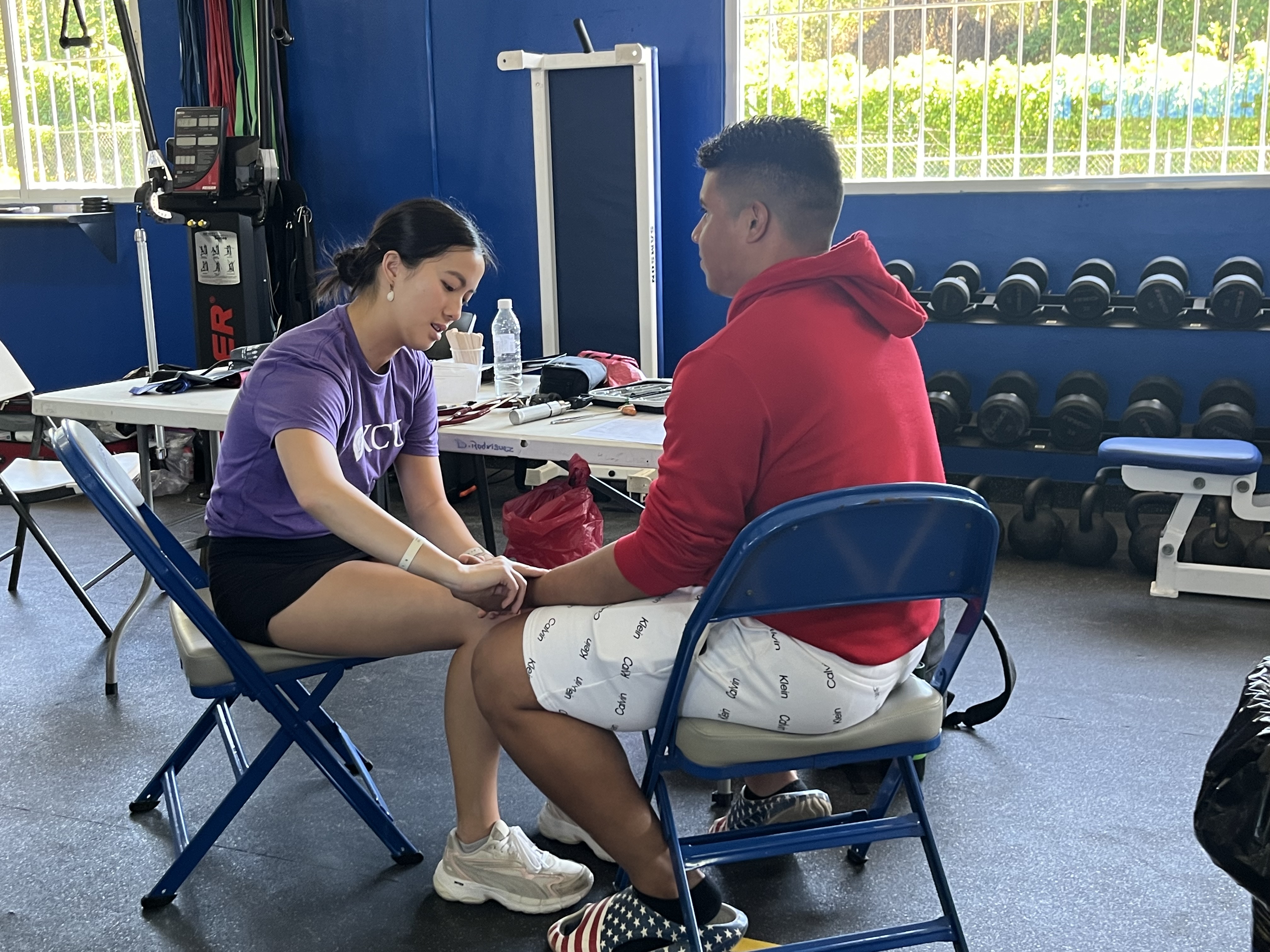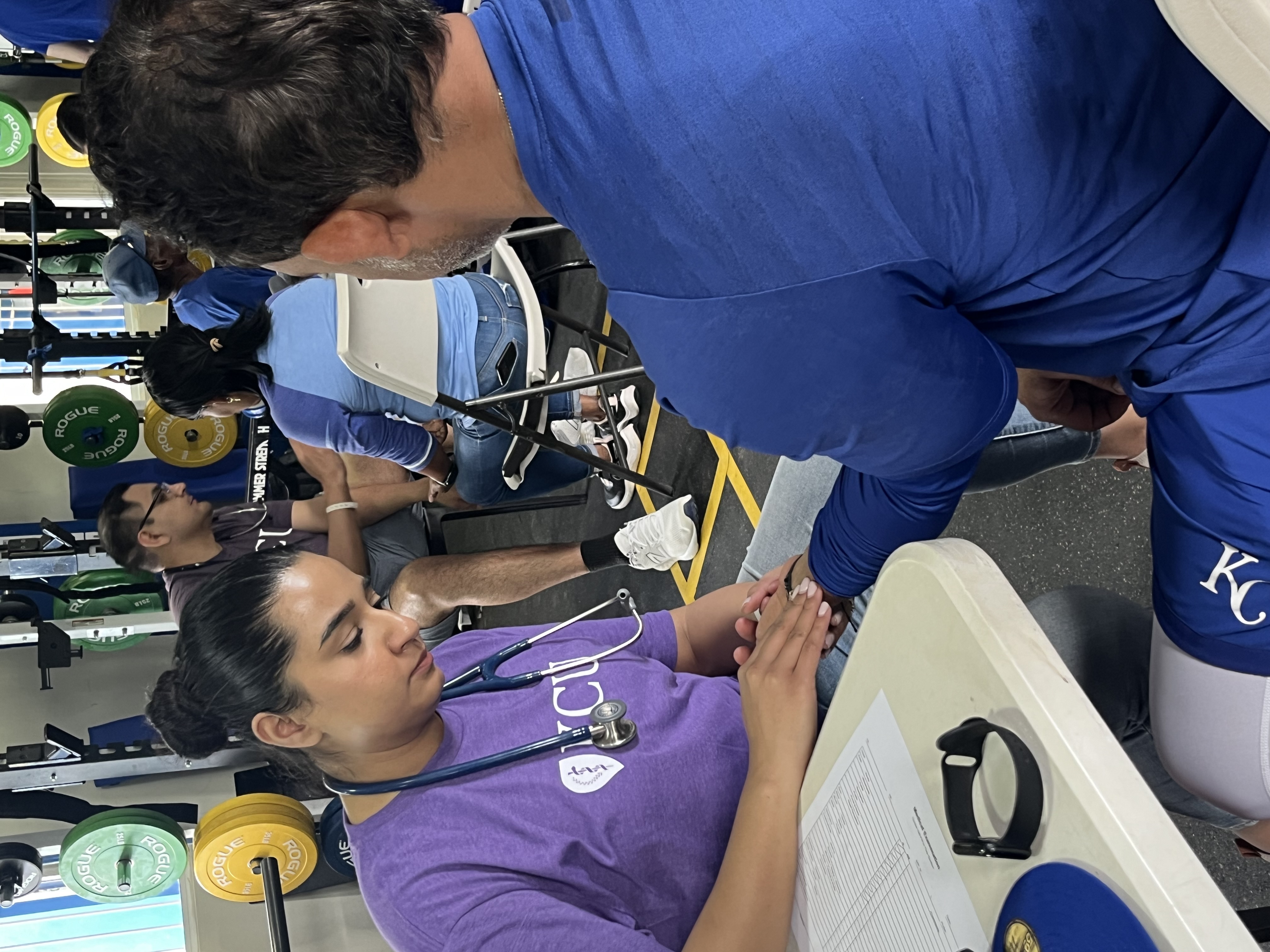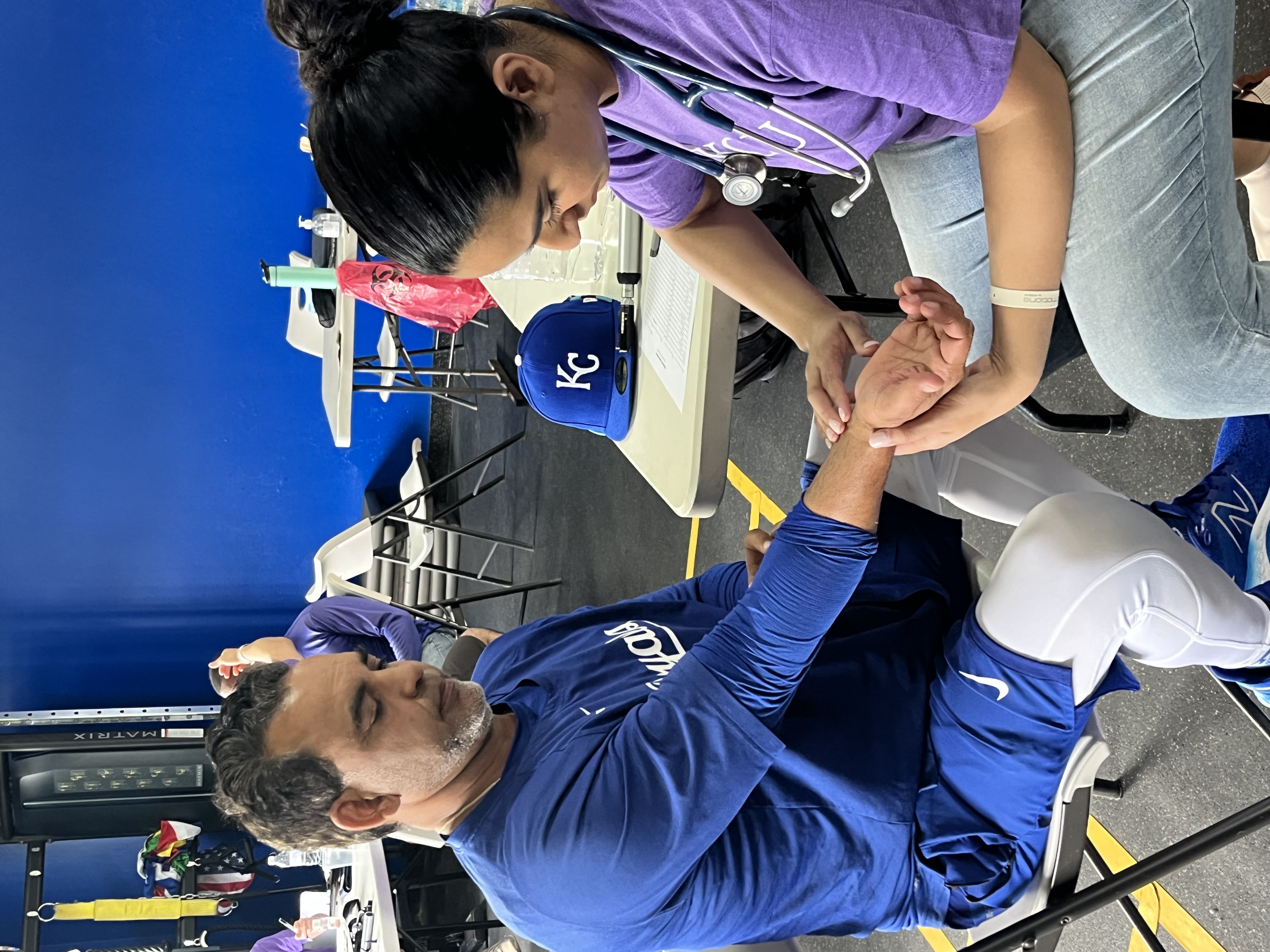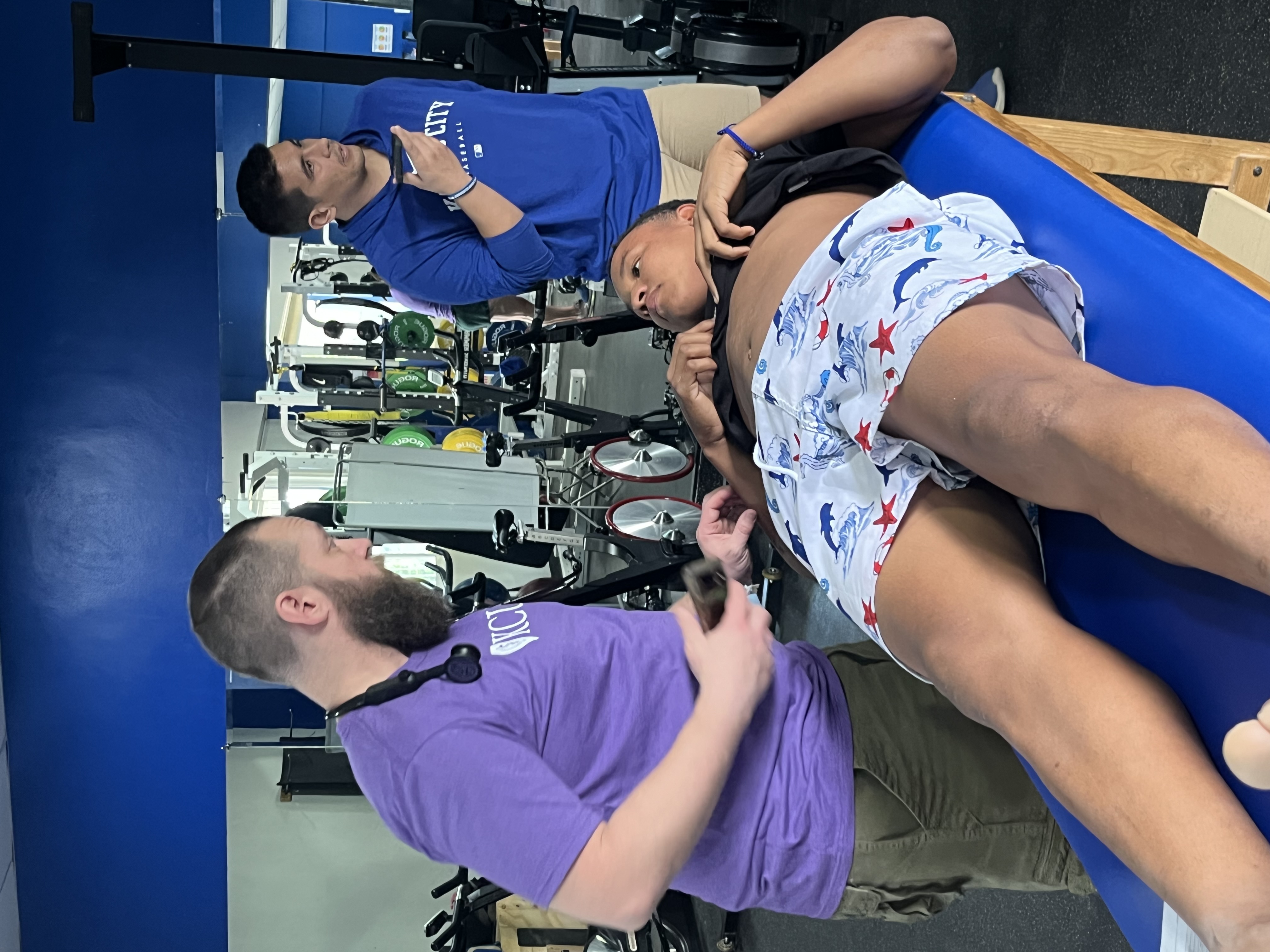When second-year student Leah Wu envisioned what medical school would be like, she never imagined that one day it would offer the opportunity to treat potential Major League Baseball (MLB) players. A trip to the Dominican Republic in conjunction with Kansas City University’s (KCU) Global Health program changed that.
Thanks to KCU’s long-standing relationship with the Kansas City Royals and their Academy in the Dominican Republic, Wu and eleven fellow medical students had the chance to hone their clinical skills while screening MLB up-and-comers. “I don’t have a particular interest in sports medicine when I become a physician, but I learned so much from my experience working with athletes and the Royals organization that will benefit me in the future,” said Wu.
Early in their education, medical students begin gaining health assessment and clinical experience through simulated patient encounters and Score 1 for Health, KCU’s preventive health program that provides free in-school health screenings for elementary-aged children. The additional experience that students like Wu acquire through global health outreach exposes them to health care systems and people they might not encounter. Screening MLB hopefuls through complete physical exams gave students the chance to build their exam skills and get exposure to the process of reviewing laboratory results and electrocardiograms which were done on all of the athletes. They conducted highly detailed orthopedic exams under the supervision of Vincent Key, MD, head team physician for the Royals and Kansas City orthopedic surgeon.
“When we screen pitchers, for example, at the Academy, we do very thorough exams on the upper extremities to analyze joint stability, strength, and range of motion to identify physical limitations that may impede their pitching,” said W. Joshua Cox, DO, KCU executive dean for the College of Osteopathic Medicine. “These screenings are much more comprehensive than the typical sports physicals our students have seen and performed in the past.”
When their work with the Kansas City Royals Dominican Academy was complete, the team traveled into smaller towns and villages outside Santa Domingo and Guerra to set up outpatient clinics. There, students continued working alongside KCU faculty members and Dominican doctors to provide medical care to the community treating common ailments like respiratory diseases, parasitic infections, high blood pressure and diabetes. They also treated gastrointestinal conditions, musculoskeletal complaints and skin conditions. Due to the tropical climate there, fungal and other skin infections are prevalent. Access to care and lab and imaging facilities in these areas of the Dominican Republic are much more limited. Because of this, the physicians and students had to rely more heavily on their physical exam skills and consider things like lifestyle and availability of resources.
The KCU team even took time to treat staff members working at the hotel where they stayed for the duration of the trip. Hotel employees stored all of the supplies and medications and helped the team get them in and out of the storage room and loaded onto vehicles to transport each day. “We took a little extra time to take care of them because they took such good care of us,” said Cox.
For Wu, the trip boosted her clinical confidence. “I went into this thinking it would be somewhat like our simulated patient encounters, but it was an experience that’s not easily replicated in the classroom. Patients came to me with an unclear chief complaint and I had to start developing a differential diagnosis—my list of possible conditions that might be causing their symptoms,” she explained. “There were no guided scripts for me to follow.”
Her time serving in the Dominican Republic not only stretched Wu’s clinical and critical thinking skills, but also her cultural competence. “Learning in an unfamiliar clinical setting where patients speak a different language and live a different culture helped me think more analytically about medicine and solidified my desire to work in a diverse urban environment when I become a physician,” she said. “I am so grateful for the opportunity to work in tandem with Dominican doctors. Their job is much harder than ours because of such limited resources. They have learned to improvise and work with what they have available. It was very humbling.”
Over the dozen years KCU faculty and students have traveled to the Dominican Republic, friendships and strong bonds have been formed. “We have developed relationships and consider the people we work with there our friends and colleagues. There is a special bond and a mutual appreciation for one another,” said Cox. “We are grateful for our partnership with the Kansas City Royals and the Dominican Republic physicians and groups we work with there.”
_20240326160031_0.png)

.jpeg)



_20240301155849_0.png?w=140&h=140)
_20230209200056_0.jpg?w=140&h=140)
_20230113185450_0.jpg?w=140&h=140)